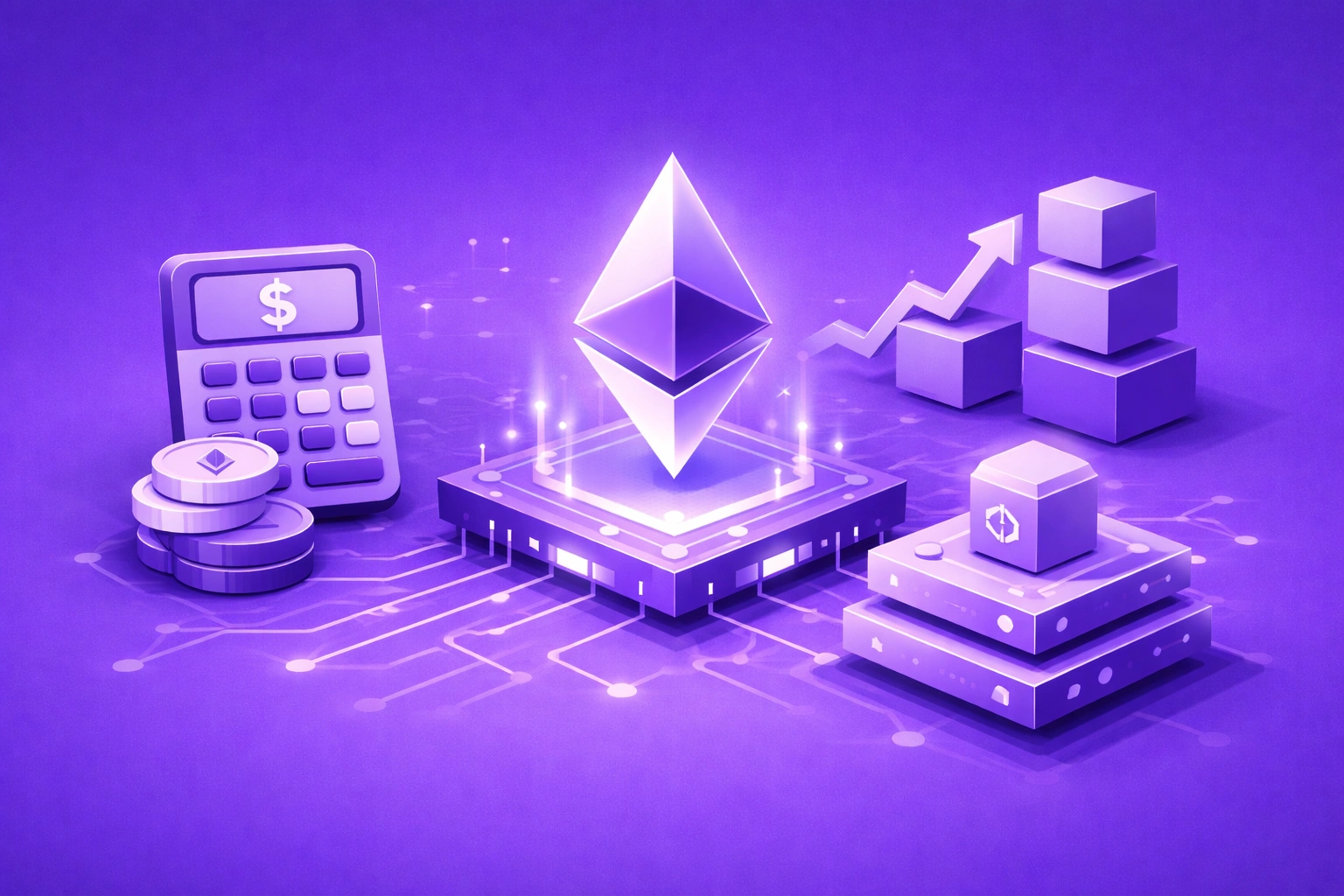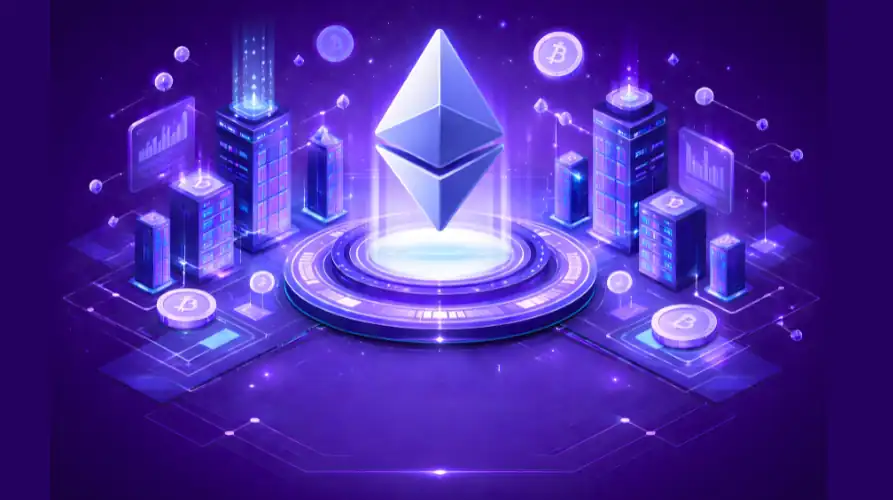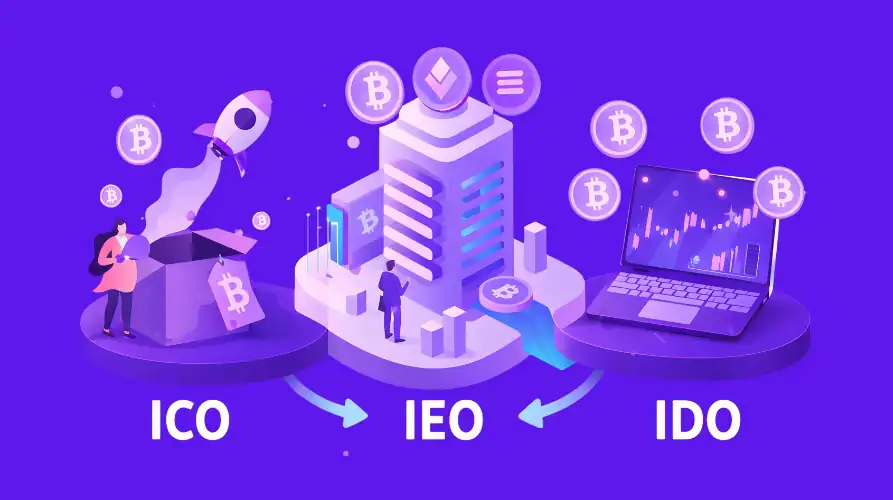Tokens are an important part of cryptocurrency and Web3. They can be divided into fungible tokens, which are all the same, and non-fungible tokens (NFTs), which are unique. There are many types of tokens, such as utility, security, platform, and governance tokens. Governance tokens are especially important in Web3 because they allow users to take part in decision-making, like voting on changes or rules. This helps make the internet more decentralized by giving power to the community instead of a single authority.
Key Takeaways – Governance Tokens
- Governance tokens allow voting and influence in blockchain projects.
- promote decentralization by sharing control with the community.
- Voting is executed via smart contracts, ensuring transparency and security.
- Types include protocol, platform, DAO, staking-based, and delegated tokens.
- They differ from crypto coins, focusing on governance instead of payments.
- Key uses include voting, fund management, and approving project upgrades.
- Benefits include transparency, community involvement, and long-term trust.
- Challenges include low participation, large-holder dominance, and complex votes.
What Are Governance Tokens?
Governance tokens are digital assets that give holders the right to vote and take part in decision-making in a blockchain project. These decisions may include changing rules, upgrading the system, adjusting fees, or managing funds. Governance tokens are also a type of crypto token, designed to give users a voice in the project instead of just being used for transactions.
Instead of a single company controlling everything, governance tokens allow users to share control. This system is commonly used in decentralized platforms, especially in DeFi and DAO projects. Holding governance tokens means you have a voice in how the project grows and changes in the future.
Why Governance Tokens Are Important
Governance tokens are crucial for creating fairness and transparency in blockchain projects. Unlike traditional systems where decisions are often made by a few people, governance tokens allow communities to participate directly. Every proposal, vote, and change is recorded on the blockchain, ensuring that actions are visible and verifiable by anyone. This level of transparency reduces the chance of misuse or hidden decisions, making the system trustworthy for all participants.
Another reason governance tokens are important is community engagement. When users hold these tokens, they gain the power to influence project direction. This involvement gives users a sense of ownership and responsibility, which strengthens the community. Projects with active token holders tend to grow faster and remain stable over time because decisions reflect the collective interest rather than the agenda of a few.
Types of Governance Tokens
Governance tokens are not the same for every project. Different platforms use different governance models based on their structure and goals. Below are the main types of governance tokens used in blockchain ecosystems.
1. Protocol Governance Tokens
Protocol governance tokens control the core rules of a blockchain protocol. These tokens allow users to vote on major technical changes.
Common decisions include:
- Updating protocol logic
- Changing reward systems
- Adjusting network parameters
- Managing security upgrades
These tokens are usually used in base-layer or DeFi protocols where long-term stability is critical.
2. Platform Governance Tokens
Platform governance tokens focus on the operational side of decentralized platforms.
They are used to vote on:
- Platform features
- Fee structures
- User experience improvements
- Partnership decisions
These tokens help platforms grow according to user needs and feedback while supporting advanced crypto token solution models.
3. DAO Governance Tokens
DAO governance tokens are used in Decentralized Autonomous Organizations. These tokens allow members to manage the organization without a central leader.
DAO token holders can vote on:
- Budget allocation
- Hiring contributors
- Project timelines
- Strategic decisions
This model replaces traditional management systems with community control.
4. Staking-Based Governance Tokens
In this model, users must lock their governance tokens through staking to participate in voting.
Benefits of staking-based governance:
- Encourages long-term participation
- Reduces short-term speculation
- Improves network security
Staked tokens often give higher voting power and additional rewards.
5. Delegated Governance Tokens
Delegated governance allows users to assign their voting power to another trusted member.
This system helps when:
- Users lack technical knowledge
- Participation is low
- Decisions are complex
Delegation improves governance quality while keeping decentralization intact.
How Do Governance Tokens Work?
Governance tokens work as a digital voting system on the blockchain. They allow users to take part in important decisions without needing a central authority. This process is controlled by smart contracts, which follow fixed rules and cannot be changed once deployed.
Let us understand the complete working step by step.
1. Distribution of Governance Tokens
Governance tokens are first distributed to users so they can take part in governance. Distribution methods depend on the project’s goals and the broader crypto token services strategy.
Common distribution methods include:
- Rewards for early users
- Staking and liquidity rewards
- Airdrops to community members
- Allocation to developers and investors
The goal is to give tokens to active participants so decision-making power stays within the community.
2. Proposal Creation Process
Any eligible token holder can create a proposal. A proposal is a formal suggestion for changing or improving the project.
Examples of proposals include:
- Changing transaction fees
- Upgrading smart contracts
- Adding new features
- Managing treasury funds
- Improving security rules
Most platforms require a minimum number of governance tokens to submit a proposal. This prevents spam and low-quality ideas.
3. Discussion and Review Phase
Before voting starts, proposals are shared with the community. Users discuss them on forums, dashboards, or governance platforms.
During this phase:
- Pros and cons are discussed
- Risks are analyzed
- Improvements are suggested
This step helps users make informed decisions instead of voting blindly.
4. Voting Mechanism
After discussion, voting begins. Voting usually happens directly on the blockchain.
Key points of voting:
- One token usually equals one vote
- Voting power depends on token balance
- Voting period is fixed (for example, 3–7 days)
- Votes are recorded publicly on the blockchain
Some platforms also allow vote delegation, where users can give their voting power to trusted members.
5. Vote Counting and Approval
Once the voting period ends, smart contracts automatically count the votes.
A proposal is approved only if:
- Minimum vote participation is met
- Required majority is achieved
This ensures that decisions are not made by a very small group.
6. Automatic Execution Through Smart Contracts
If a proposal is approved, smart contracts automatically execute the decision. No human approval is required.
This makes governance:
- Transparent
- Secure
- Tamper-proof
- Fully decentralized
Because everything is coded, no one can change the result after voting ends. Many projects that create crypto token solutions rely on this automation for trustless execution.
Governance Tokens vs Crypto Coin
Many people think all digital assets work the same way, but there is a clear difference between governance tokens and Crypto Coin models. Understanding this difference helps users choose the right asset for the right purpose.
| Feature | Governance Tokens | Crypto Coin |
|---|---|---|
| Purpose | Used for voting and decision-making | Used for payments and value transfer |
| Blockchain | Built on existing blockchains | Have their own blockchain |
| Main Function | Governance and community control | Money-like transactions |
| Voting Rights | Yes, holders can vote | No voting rights |
| Example Use | Protocol upgrades, fund decisions | Paying fees, sending value |
| Control Type | Community-driven | Network-driven |
A crypto coin and token serve different purposes. A Crypto Coin mainly works like digital money, while governance tokens are designed to give users power over how a project is managed.
Different Uses of Governance Tokens
Governance tokens are not limited to voting only. They play many roles in decentralized ecosystems and help projects operate smoothly. Governance tokens allow users to actively shape the future of a blockchain project. Instead of developers making all decisions, the community decides together. This system reduces central control and increases transparency.
These tokens are widely used in DeFi platforms, DAOs, and blockchain-based communities.
Main Uses
- Voting on protocol upgrades and system changes
- Managing community treasuries and funds
- Deciding transaction fees and reward models
- Approving partnerships and integrations
- Setting long-term project goals
Because of these uses, governance tokens act as the backbone of decentralized governance.
Benefits of Governance Tokens
Build Your Governance Token Now!
Governance tokens let you vote, influence projects, and shape the decentralized future. Join and make your voice heard!
Governance tokens provide strong advantages to both users and projects. They improve trust, fairness, and long-term sustainability. By giving voting rights to users, governance tokens create a sense of ownership. Token holders feel responsible for the success of the platform. Since all decisions are recorded on the blockchain, transparency is maintained at every step.
Key Benefits
- Transparent decision-making process
- Strong community involvement
- No single authority controls the project
- Better alignment between users and developers
- Long-term stability and trust
These benefits make governance tokens essential for modern decentralized systems.
Challenges of Governance Tokens
Although governance tokens offer many advantages, they also face several challenges that projects must handle carefully. One major issue is unequal voting power. Users holding a large number of tokens may influence decisions unfairly. Another challenge is low participation, as many users do not vote regularly.
There is also the risk of poor decisions if voters lack technical knowledge.
Common Challenges
- Large holders dominating voting
- Low voter participation
- Complex proposals hard to understand
- Smart contract risks
- Conflicts within the community
To overcome these problems, projects are developing better voting models and education systems.
Governance Token vs Utility Token
In the crypto world, not all tokens work the same way. Governance tokens and utility tokens are two popular types, each serving a different purpose. While governance tokens give holders voting power and control over a project’s decisions, utility tokens are mainly used to access services or products within a blockchain ecosystem.
| Feature | Governance Token | Utility Token |
|---|---|---|
| Purpose | Voting and project governance | Access to services or products |
| Rights | Holders can vote on proposals | No voting rights |
| Role | Decision-making and decentralization | Usage and consumption within platform |
| Example | COMP, MKR, UNI | LINK, BAT, GRT |
| Value | Linked to community influence | Linked to platform usage |
Governance tokens empower users in decision-making, while utility tokens focus on using the platform. Both together create a balanced blockchain ecosystem supported by advanced crypto token services.
Conclusion
Governance tokens play a crucial role in shaping the future of decentralized ecosystems. They go beyond being simple digital assets by giving users real power to influence decisions, manage resources, and guide the long-term direction of blockchain projects. Through transparent voting mechanisms and smart contract automation, governance tokens replace centralized control with community-driven decision-making.
By enabling fairness, accountability, and active participation, governance tokens strengthen trust between users and developers while promoting sustainable growth. Although challenges such as low participation and unequal voting power exist, continuous improvements in governance models are helping create more balanced and inclusive systems.
As Web3 continues to evolve, governance tokens will remain a foundational element of decentralized platforms, DAOs, and DeFi protocols. They empower communities to collaborate, innovate, and build the internet of the future—one where control is shared, decisions are transparent, and users truly own the systems they support.
Reviewed & Edited By

Aman Vaths
Founder of Nadcab Labs
Aman Vaths is the Founder & CTO of Nadcab Labs, a global digital engineering company delivering enterprise-grade solutions across AI, Web3, Blockchain, Big Data, Cloud, Cybersecurity, and Modern Application Development. With deep technical leadership and product innovation experience, Aman has positioned Nadcab Labs as one of the most advanced engineering companies driving the next era of intelligent, secure, and scalable software systems. Under his leadership, Nadcab Labs has built 2,000+ global projects across sectors including fintech, banking, healthcare, real estate, logistics, gaming, manufacturing, and next-generation DePIN networks. Aman’s strength lies in architecting high-performance systems, end-to-end platform engineering, and designing enterprise solutions that operate at global scale.







